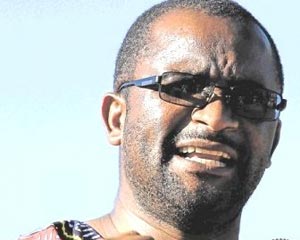
Over the past few weeks, acres of space in the press have been dedicated to try to show that the MDC is an undemocratic and violent party that does not respect constitutionalism. Empirical evidence however shows that the contrary is in fact true about the MDC.
However, it is clear from the various writings that the understanding of constitutionalism is varied. Constitutionalism means that a country has a written constitution which it follows to the letter. In the context of a political party, it means that a party has a written constitution that it follows religiously.
Needless to say, the MDC has a written constitution.
As a party, the MDC has always followed its constitution. In terms of the constitution, all senior leaders of the party, including the president, are democratically elected by congress. In this regard constitutionalism entails an insistence that a president shall only be elected or removed at congress and not through some boardroom arrangement. Insistence that a president must be removed outside congress, at the same time professing to be a follower of constitutionalism is, with respect, to speak with a forked tongue.
The National Council of the party, which is the highest decision-making body outside congress, ruled in September 2013 that any leadership changes will only be done at the congress which is going to be held in 2016, unless the National Council or the president calls for an earlier congress in terms of the constitution of the party.
One individual or a group of individuals cannot vary that decision under the guise of constitutionalism! What is constitutional is for that individual to seek to convince the National Council or the president to convene an early Congress.
One can never validly accuse the MDC as lacking constitutionalism on the basis of its insistence that it will hold its congress when it is legally due in 2016.
- Chamisa under fire over US$120K donation
- Mavhunga puts DeMbare into Chibuku quarterfinals
- Pension funds bet on Cabora Bassa oilfields
- Councils defy govt fire tender directive
Keep Reading
Another area of great conceptual difficulty for some of the critics is how a member of the National Standing Committee can be dealt with once there are allegations of indiscipline against him. In this regard one accusation against Elton Mangoma is that after he wrote his paper and same was leaked to the press, the National Executive Committee of the party placed a ban on every official against discussing this issue with the press.
It is alleged that despite that order, the Deputy-Treasurer General acted in defiance of that order and granted interviews to radios and newspapers.
In terms of Article 12 of the MDC constitution, disciplinary proceedings can be commenced against a member of the National Standing Committee only where at least two thirds of the National Council has approved of that the charged. As soon as the National Council rules in favour of charging a member, that member is automatically suspended pending his appearance before a three member Independent Disciplinary Committee.
This committee is made up of senior lawyers outside the party. In voting for or against charging a member, Article 12 does not say that the voting shall be by secret ballot. A valid vote took place in the national council and there was no single dissention on whether or not the charges should be preferred.
The official to bring the preliminary charges for purposes of the national council decision is the national chairperson who is clothed with disciplinary powers in terms of Article 9.3 of the MDC constitution. It is not correct that the preliminary charges can be brought by the secretary general as suggested by some.
This is because the secretary general’s powers are provided in Article 9.5 of the constitution. It is clear from the reading of Article 9.5 that the secretary general does not have disciplinary powers.
Another source of conceptual difficulty for the critics is their belief that before a person is suspended by the national council, he or she must argue his or her case before the national council. This can’t be correct for a number of reasons. First, Article 12 does not provide for such a procedure. Second, the national council is composed of more than 100 individuals and that group cannot sit to hear a case.
Third, hearing the accused person before the national council is to pre-empt the proceedings before the Independent Disciplinary Tribunal and actually renders the Tribunal irrelevant.
Due process starts once the charges have been preferred. It does not start before. In this regard, the accused person must be served with written charges.
He or she will be given an opportunity to answer to these charges before the Independent Disciplinary Tribunal. He is entitled to legal representation by a lawyer of his choice. Through his lawyer he can mount any defence, including attacking the manner in which his case was dealt with at any stage. He could also answer to the substance of the charges themselves.
It is thus too early for anybody to criticise the MDC before the process starts before the Independent Disciplinary Tribunal.












